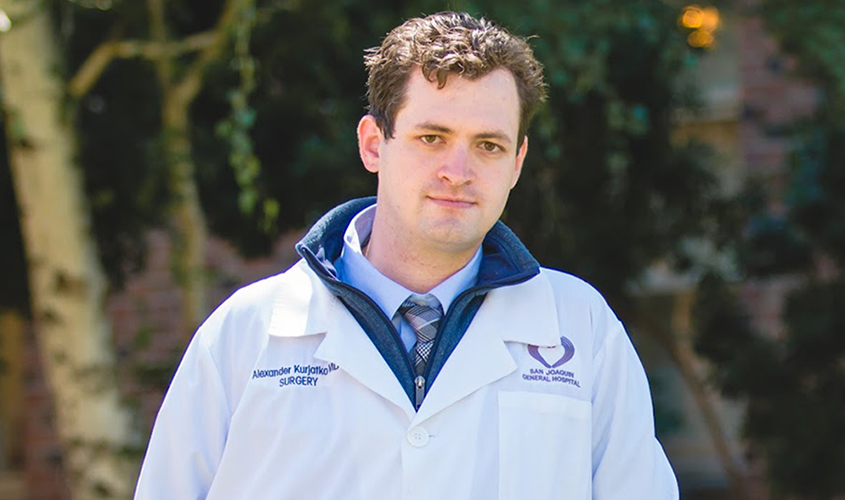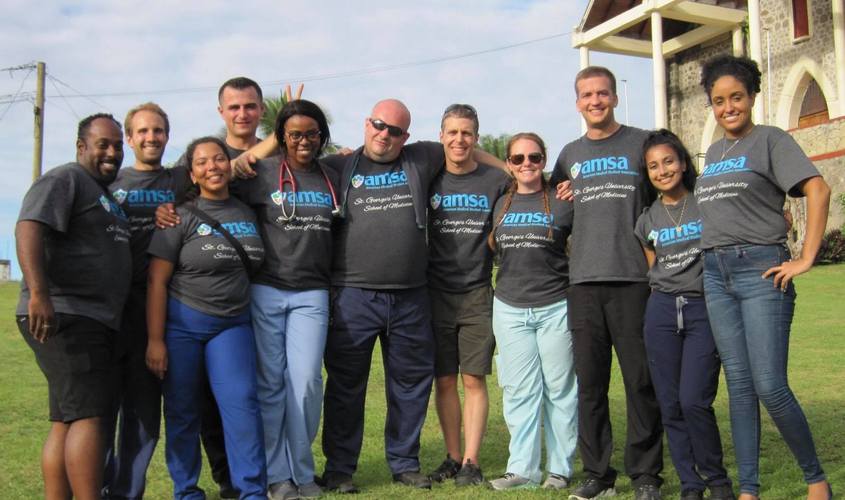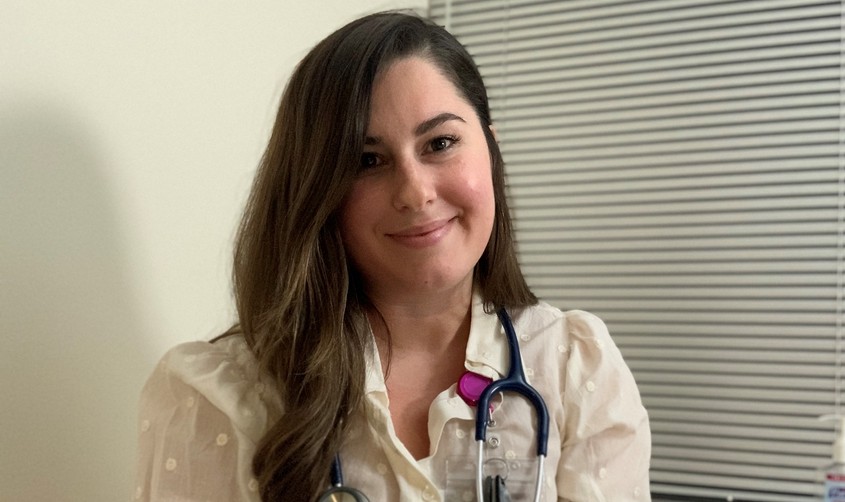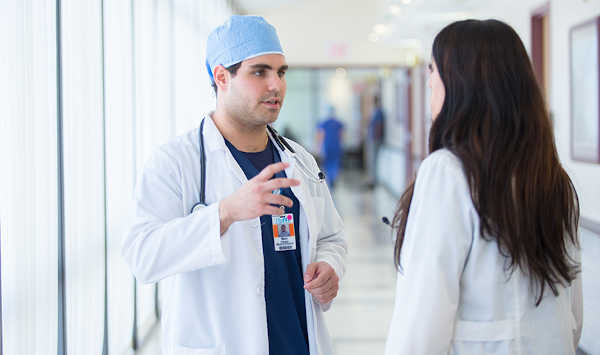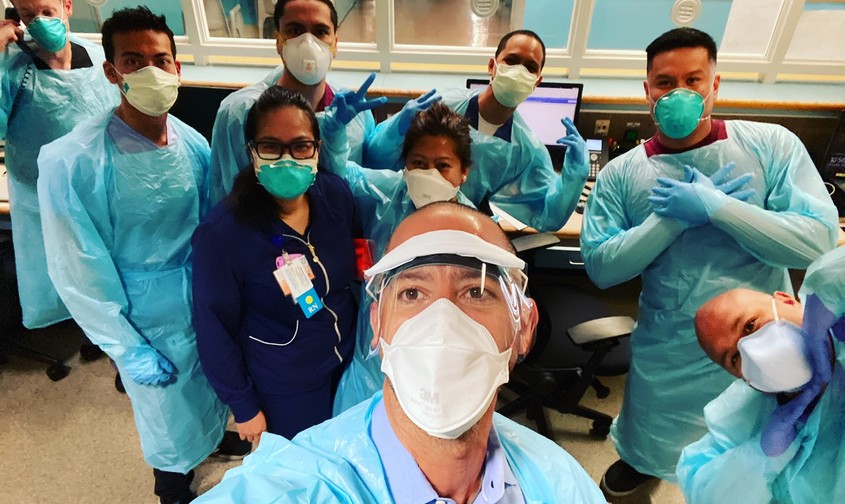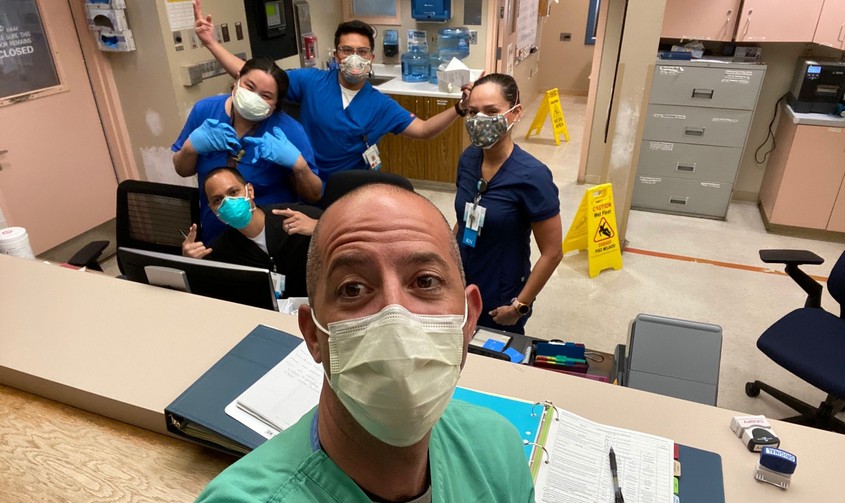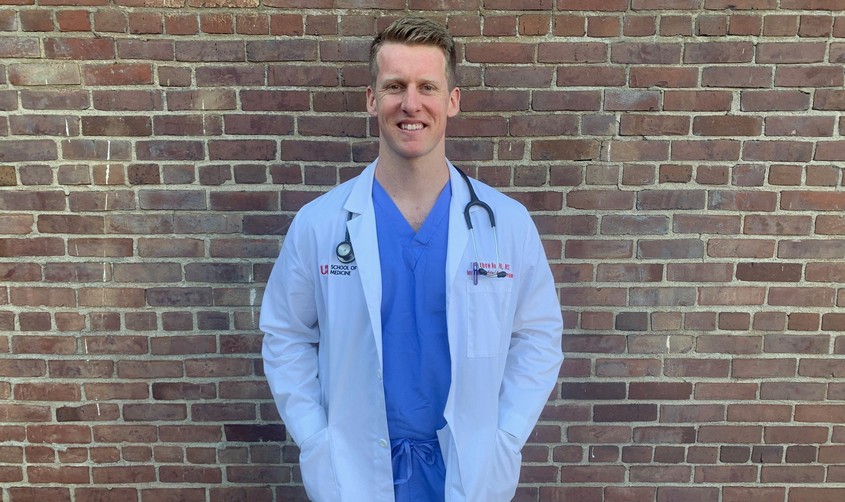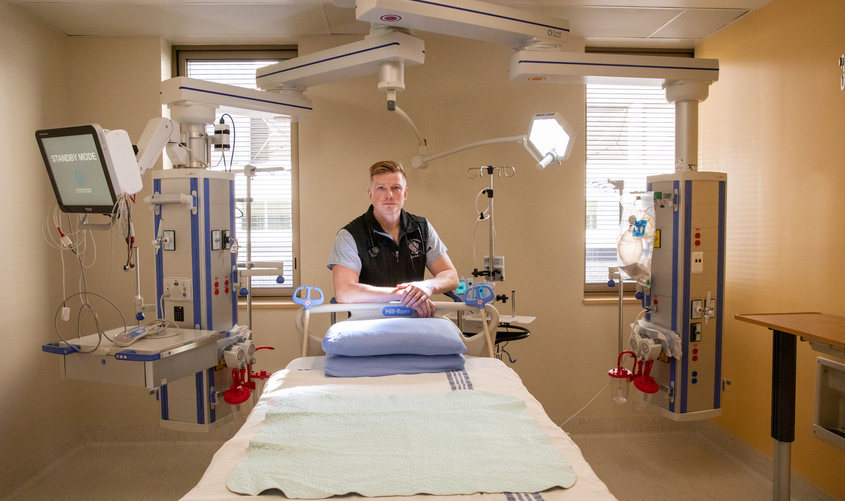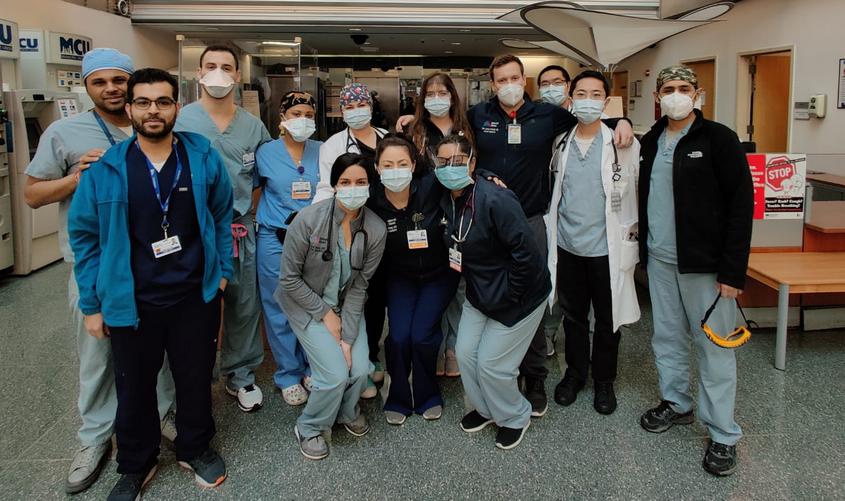
SGU alumni take a break during a shift at Queens Hospital Center to pose for a picture. Photo courtesy of Shivani Dave.
Gillian Woodruff, MD ’20 (expected), is “chomping at the bit” to get started as an internal medicine resident at NYC Health + Hospitals/Queens Hospital Center in Jamaica, NY—one of the hardest hit areas by the coronavirus disease (COVID-19) pandemic.
Ms. Woodruff, who aspires to be a gastroenterologist, joins 450 soon-to-be St. George’s University graduates who will enter residency this July at nearly 90 hospitals throughout New York and New Jersey. These new doctors will begin their careers across nine medical specialties, bringing much-needed help to facilities dealing with COVID-19.
With more than 150,000 cases of coronavirus in the New York City area alone (as of press time), Ms. Woodruff is well aware of the conditions she may enter at Queens Hospital when she begins her residency this summer.
“I have really been eager to be useful,” she said during a telephone interview from her home in Davis, CA. “Regardless of where I’m assigned, I am going to be supporting the pandemic effort, whether that’s taking care of primary care patients to free up another doctor or some other task that will be helpful. There is no uninvolved medical practitioner; everyone is going to be able to save lives from this, regardless of what they’re doing. I’m really proud and excited to be able to help in whatever way I can.”
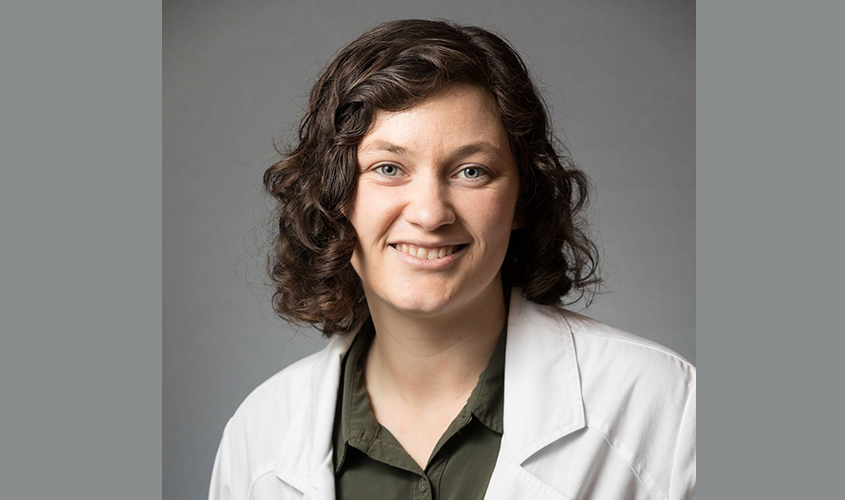
Gillian Woodruff, MD ’20 (expected), is eager to start as an internal medicine resident at NYC Health + Hospitals/Queens Hospital Center in Jamaica, NY—one of the hardest hit areas by the coronavirus disease (COVID-19) pandemic.
Hospitals throughout Greater New York City have been dealing with a record number of COVID cases and are in need of additional help to care for critically ill patients. SGU graduates who recently matched at New York and New Jersey hospitals will help to meet an immediate and growing demand for doctors in the region. Of those, 313 SGU students and graduates will start their residencies in hospitals in New York while 137 will begin their postgraduate training in hospitals in New Jersey. They join the 8,209 SGU graduates who have done their post-graduate training in New York and New Jersey hospitals over the years.
Overall, nearly 1,100 SGU students and graduates will begin their residencies across the United States and Canada this summer.
“We are very proud of our graduates and admire their dedication,” said Dr. Richard Liebowitz, vice chancellor of St. George’s University. “We know they are well prepared and ready for the challenge that will be presented to them when they begin their postgraduate training in a few months. These newly matched students join a large number of our alumni who are already part of the heroic response to the COVID-19 pandemic.”
Fortifying Tri-State Area Hospitals
As a result of the crisis, Uchechukwu Uneze, MD ’20 (expected), who will start as an internal medicine resident at Newark Beth Israel Medical Center, in Newark, NJ, expects to be much more hands-on with patients than a typical first-year resident would be.
“Our job is to provide relief for the other residents who are working tirelessly and helping them out in any way we can,” said Mr. Uneze, who eventually wants to go into pulmonary care. “In this situation I am going to be in a place where this pandemic has hit really hard. I kind of look at it as this is a rare opportunity to serve, learn, and care for patients, rather than learn from a textbook and experience it years later.”
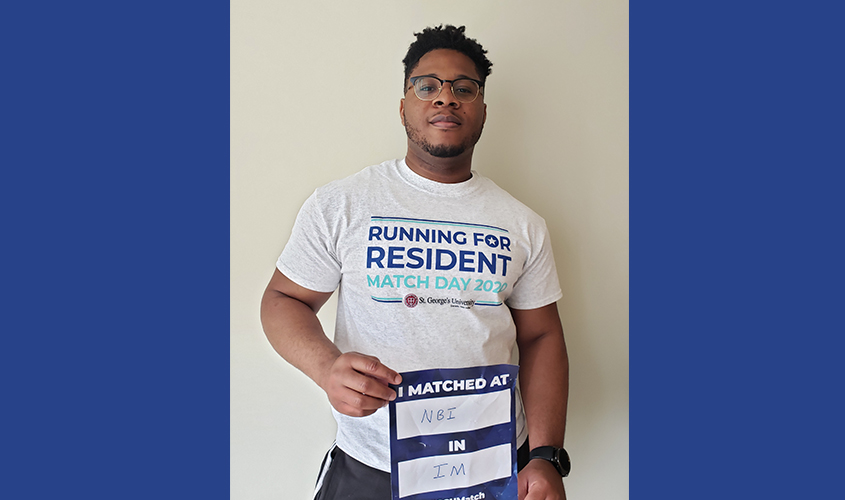
Uchechukwu Uneze, MD ’20 (expected), will start as an internal medicine resident at Newark Beth Israel Medical Center, in Newark, NJ.
Mr. Uneze, who went to Rutgers University in Newark for his undergraduate degree, said living in an underserved area strengthened his interest in medicine as he witnessed how the community was affected by limited healthcare resources. He returned to Newark to complete his clinical rotations there and ranked the hospital for residency because “I thought I would be able make a positive impact in those areas,” he said.
Elsewhere in New Jersey, Payal Patel, MD ’20 (expected), will start as an internal medicine resident at Hackensack University Medical Center. Ms. Patel, who hails from Lake Placid, FL, picked Hackensack as her first choice after completing her clinical rotations there. She said its internal medicine program, with new faculty, a focus toward academic teaching, and connections to big hospitals, appealed to her.
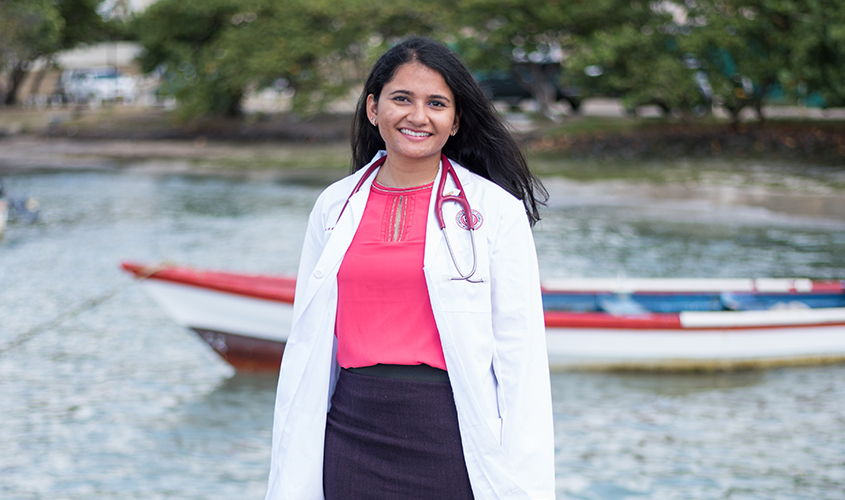
Payal Patel, MD ’20 (expected), will start as an internal medicine resident at Hackensack University Medical Center this summer.
While the COVID-19 crisis does add an extra layer of concern, it will not deter her from fulfilling her dream of becoming a physician, she added.
“I’m definitely both nervous and excited [to start residency], because we’re going to be thrown into the deep end when we start,” said Ms. Patel, who aspires to be a primary care doctor or become a hospitalist. “The hospital is taking good care of its residents, and as long as there is enough PPE and precautions taken, I am ready to face that. I’ve been working toward this goal for 20 years.”
How are our doctors helping during the COVID pandemic? Send us your story ideas. You can also share your story with us on social media by tagging SGU or using the hashtag #WeAreSGU and #SGUAlumni.
–Laurie Chartorynsky
